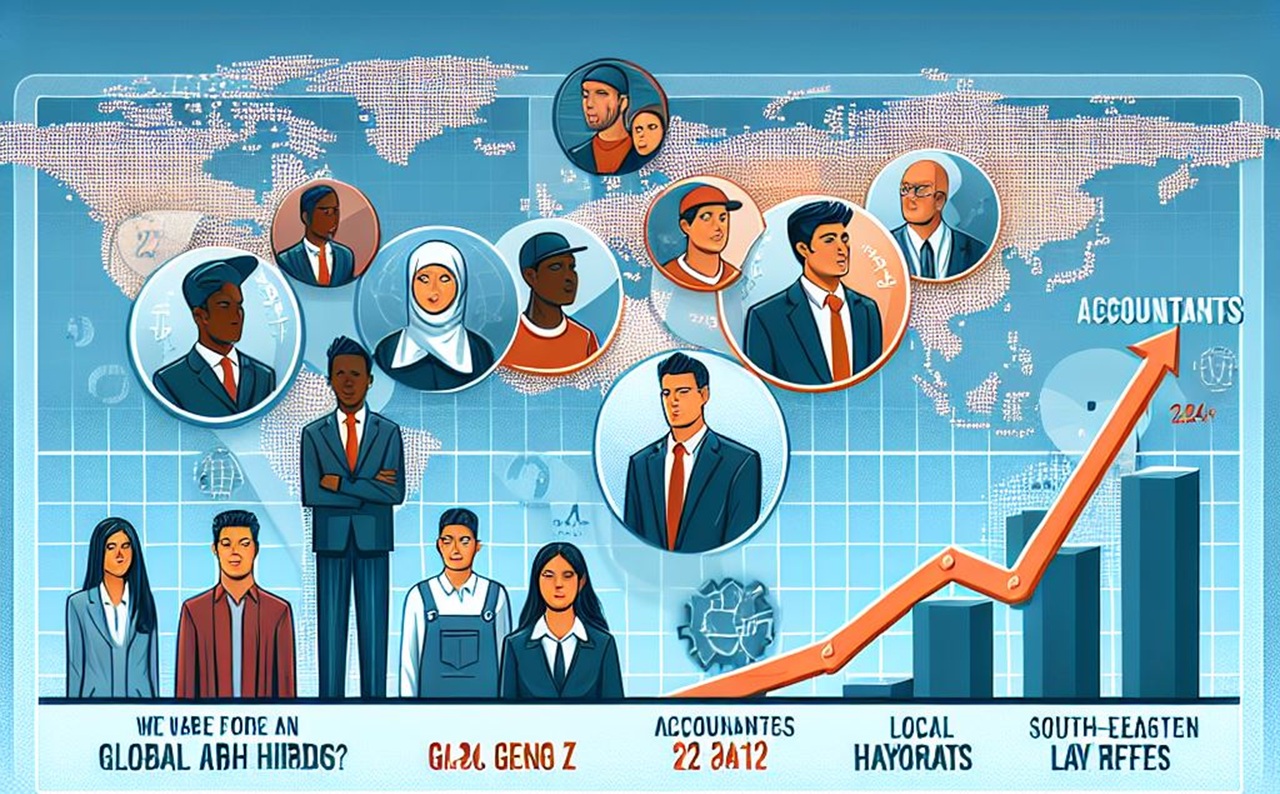
Frontline workers: Ending the dead-end job
Frontline workers suffer from a lack of advancement, with most of them being people of color. They have the skills to move up the ladder, but can't advance.
Frontline workers have been called heroes for their work during the pandemic. But for all the recognition, and no matter how necessary to the economy their jobs may be, these positions give little chance to advance past that “entry level” job.
When someone does get that promotion, it’s often not because they worked hard and showed skill – it’s more likely because of their social skills and those who spoke up for them.
In a new report published by McKinsey, it was found that there are 95 million hourly and salaried frontline workers across the U.S., but they only make an average of $33,000 a year. Of these 95 million workers, people of color are overrepresented in these positions.
These workers see little to no chances to improve their lives in these roles. Diversity, equity, and inclusion (DEI) policies are reported to be 20% less likely to be effective for hourly workers, 45% of them fearing they would hurt their careers if they used work-life policies – such as parental leave – despite it being legal to do so. And of all hourly frontline employees, only 39% believed their employers were objective when it came to evaluating performance and awarding promotions.
Co-author of the report and partner at McKinsey & Company, Monne Williams is a business performance developer who has overseen hundred-million and billion dollar plans to improve leader and employee mindsets, corporate culture, and ensure new performance goals are met and maintained. Williams spoke with AL DÍA to discuss how this dead-end job issue could be resolved.

THE PROBLEM
The traditional wisdom, Williams told us, is that employers don’t think about making frontline positions pleasant to work in. These positions are driven to work as efficiently as possible to reduce costs the company pays. This applies to the employees as well, with common knowledge being to fire and hire employees as is most profitable, creating a revolving door of employment.
Sponsorship from other employees, another key element of promotions, is similarly lacking among employees of color. Nearly six in ten Black and Latino employees don’t have sponsors, an essential part of promotions, as Williams and Co found having four or more sponsors makes an employee five times more likely to receive a promotion.
Sponsors aren’t the only ones that play an important role in how promotions are being meted out. While some may believe that frontline workers are unqualified for promotions, in reality 70% of promotions from frontline worker to corporate position rely on interpersonal skills rather than skills required by the job.
Race also plays a role in determining success. While people of color are overrepresented in these frontline worker positions, they don’t always face the same challenges people of other races face. For example, Black workers on average are paid 25% less than their White peers, with 84% of them wanting to be promoted to better paying ones, but only 62% report chances to do so.
Latinos in comparison report the highest rates of promotion among people of color, but routinely cite a lack of support for employee well-being, causing significant job attrition as they struggle to find a better position, feeling unprotected and silenced at their frontline positions.
But things have started to change. In what is coming to be known as the Great Resignation – or the Great Attrition – employees are becoming more selective in where they work. These employees are seeking out positions that allow for flexibility, better wages, better benefits, and more opportunities to climb the corporate ladder.
As the traditional wisdom of learning skills and using them to gain promotions fails, these employees are taking what they have learned and are seeking positions that give them the advancement they want. But talent doesn’t often swap to another industry, Williams says. These workers are leaving their jobs, and joining their old employer’s competitors.
BUSINESS SENSE AND SENSIBILITIES
“There are a few things to think about when we think about the responsibility for companies,” Williams said. “The first piece is, how do we find opportunities for organizations to give a stronger voice to frontline employees?”
Since 1971, the idea of corporate responsibility has existed in the minds of governments, business owners, and the public. The social contract between a business and its employees has seen a steady rise in importance since then, not only as an ethical responsibility, but a sound business decision.
To meet rising demand for things like flexible hours, better wages, and career advancement opportunities, organizations need to understand their employees now more than ever.
Williams spoke about how in the growing Great Resignation, workers are finding they have more options available to them now. As companies feel the pain of their employees leaving, many are finding it difficult to refill the growing vacancies. This in turn is causing companies to think about attracting and retaining workers more holistically as they engage in competition beyond markets and geographies.
Nearly 85% of all employees have received formal training from their current employer; that number jumps up to nearly 96% when informal training is included. Beyond internal training, workers are looking for companies that can promote their education and help them pursue a degree.
When the company they work for doesn’t meet their standards, another company can poach them by listening to and meeting what they need and want. Finding this out can be as simple as requesting feedback from workers, or by holding one-on-one conversations about their work experiences.
“The first part is you really have to understand in your own company, ‘What are the specific needs?’” Williams said. “The second part that applies to almost all companies is raising the floor on the frontline experience.
“What are the things that you can do on a more systematic level that makes that experience more positive for everyone?” Williams asked.
In raising the floor, that means providing more resources for these frontline workers. These can include mental health services, advance scheduling, and a flexible work environment. But some struggles aren’t felt across the board. For example, when Williams spoke to employees about what issues they faced, Latino workers reported that they struggled with getting nutritional food while at work.
RELATED CONTENT
“There are some organizations that are more forward thinking on this. They’re starting to take a lot of the practices that they were already applying to their more corporate populations as a result of a lot of the research that we've seen around the Great Resignation” Williams told us, referring to companies that raise their wages before legislation requires it from them and those that offer competitive benefits or learning opportunities.
But while this can retain employees for frontline positions, talent can still go to waste as skilled employees are passed over for promotions they are qualified for.
“In our report, we saw that while some frontline roles create a path to greater economic mobility, others do not. The roles with the highest opportunity for advancement are what we call ‘gateway occupations.’ These give workers the opportunity to build skills and experience and earn more than $42,000 a year. More specifically, gateway occupations provide a ‘highway’ for employees of color to earn middle class wages,” Williams said.
The McKinsey report describes the first job at the start of the frontline pipeline as the “Origin” job. These jobs usually pay less than $37,000 yearly, comprising positions like wait staff, retail salespeople, and maintenance workers. The gateway positions she describes are the step between a frontline worker's current role and the job they want.
For example, a frontline worker might work as a customer service representative with the goal of eventually becoming sales manager. But to do so, they might need experience as a supervisor of production or another similar job to advance.
There is another issue, however. Even with raising the floor, taking in employee feedback, and for companies to follow through on their DEI programs, how do they ensure that skilled workers aren’t overlooked?
The answer lies in the frontline manager, the person who oversees and evaluates the work of these frontline workers. Williams envisions the position of manager taking an active role in developing the company’s workforce, taking responsibility as the one who shapes their work experience.
These frontline managers of the future should be equipped with the skills, training, and awareness to tackle issues like racial inequality and how it might show up in the workplace. Interpersonal skills, a valuable and highly transferable skill set, must also be something that these managers can recognize and encourage. They must ultimately be the ones who truly know their employees, and be the best informer for whether an employee has the skills for a higher position, something that many companies struggle with even today.
SITTING DUCKS OR HIDDEN GEMS?
While organizations can do a lot to change their workplace culture, raise the floor, and develop new frontline policies, even companies ahead of the curve find the prospect difficult, with implementation possibly taking years. So what can employees in these positions do until their voices are heard?
For Williams, there are two key elements: marketing your current skills, and learning new ones.
One example Williams gave for these frontline workers was a barista who makes coffee. While on the surface, their skills might seem centered on being good at making coffee, there are plenty of highly transferable skills as well: interpersonal skills gained through regular one-on-one interactions, the ability to maintain relationships with returning customers, and conflict resolution of customer issues.
Those who are currently leaving their jobs should be searching for positions that offer more on the job training, exposure to leadership, and mentors and sponsors. When they’re on the job, workers should volunteer for new tasks and responsibilities outside of their current ones to learn new skills that can advance their careers.
“While there are things workers can do to position themselves for success, many of the challenges we see in terms of representation and advancement are structural and require systemic change within companies to address,” Williams said.
“Companies need to take a good look at their stock of frontline roles and ensure there’s equitable representation in those gateway roles that provide opportunities for career progression,” she continued.











LEAVE A COMMENT: